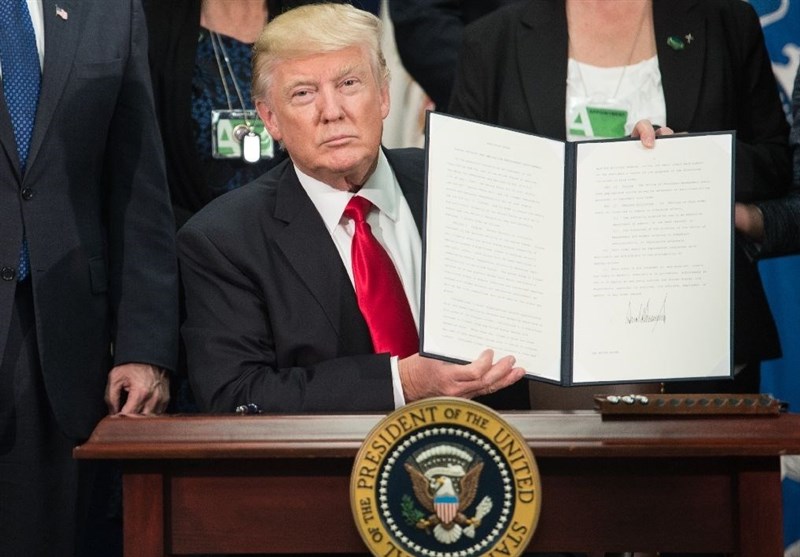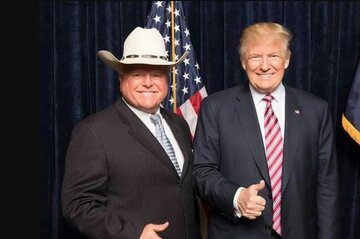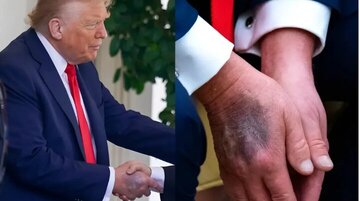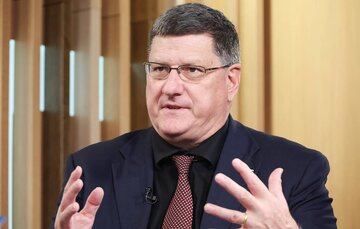(AhlulBayt News Agency) - The new travel ban comes six weeks after Trump's original executive order caused chaos at airports nationwide before it was blocked by federal courts. It removes out language in the original order that indefinitely banned Syrian refugees and called for prioritizing the admission of refugees who are religious minorities in their home countries. That provision drew criticism of a religious test for entry and would have prioritized Christians over Muslims fleeing war-torn countries in the Middle East.
The new ban, which takes effect March 16, also explicitly exempts citizens of the six banned countries who are legal US permanent residents or have valid visas to enter the US -- including those whose visas were revoked during the original implementation of the ban, senior administration officials said.
"We cannot compromise our nation's security by allowing visitors entry when their own governments are unable or unwilling to provide the information we need to vet them responsibly, or when those governments actively support terrorism," Attorney General Jeff Sessions said Monday.
The new measures will block citizens of Syria, Iran, Libya, Somalia, Sudan and Yemen from obtaining visas for at least 90 days. The order also suspends admission of refugees into the US for 120 days, directing US officials to improve vetting measures for a program that is already widely regarded as extremely stringent.
Trump signed the executive order earlier Monday in the Oval Office outside the view of reporters and news cameras, after more than three weeks of repeated delays, the latest of which came after White House officials decided last week to delay the signing to avoid cutting into positive coverage of Trump's joint address to Congress.
The delays also came amid an intense lobbying effort from Iraqi government officials, including from the country's prime minister, to remove Iraq from the original seven-state list of banned countries.
Secretary of State Rex Tillerson said Iraq's removal from the list came after an intense review from the State Department to improve vetting of Iraqi citizens in collaboration with the Iraqi government, though he did not specify how vetting had been improved.
"The United States welcomes this kind of close cooperation," he said. "This revised order will bolster the security of the United States and our allies."
The rollout of the revised travel ban marks an important moment for the administration, which has little room for error after the chaotic debut of the original plan. That failure raised questions about the new White House's capacity to govern and to master the political intricacies needed to manage complicated political endeavors in Washington. It also brought Trump into conflict with the judiciary in the first sign of how constitutional checks and balances could challenge his vision of a powerful presidency built on expansive executive authority.
The original order came under intense criticism as an attempt to bar Muslims from entering the country, and Trump's call during the campaign for a "Muslim Ban" was cited in court cases attacking the ban.
The new order does not prioritize religious minorities when considering refugee admissions cases.
Administration officials Monday stressed they do not see the ban as targeting a specific religion.
"(The order is) not any way targeted as a Muslim ban ... we want to make sure everyone understands that," an official told reporters.
"The Department of Justice believes that this executive order just as the first executive order is a lawful and proper exercise of presidential authority," Sessions said.
Democrats responded by calling Trump's order a repeat version of the first attempt.
"Here we go again...Muslim Ban 2.0 #NoBanNoWall" tweeted Rep. Andre Carson of Indiana, one of two Muslims serving in the House of Representatives.
People of US gathered in front of the White House in protest to the travel ban and supported refugees.






/298





